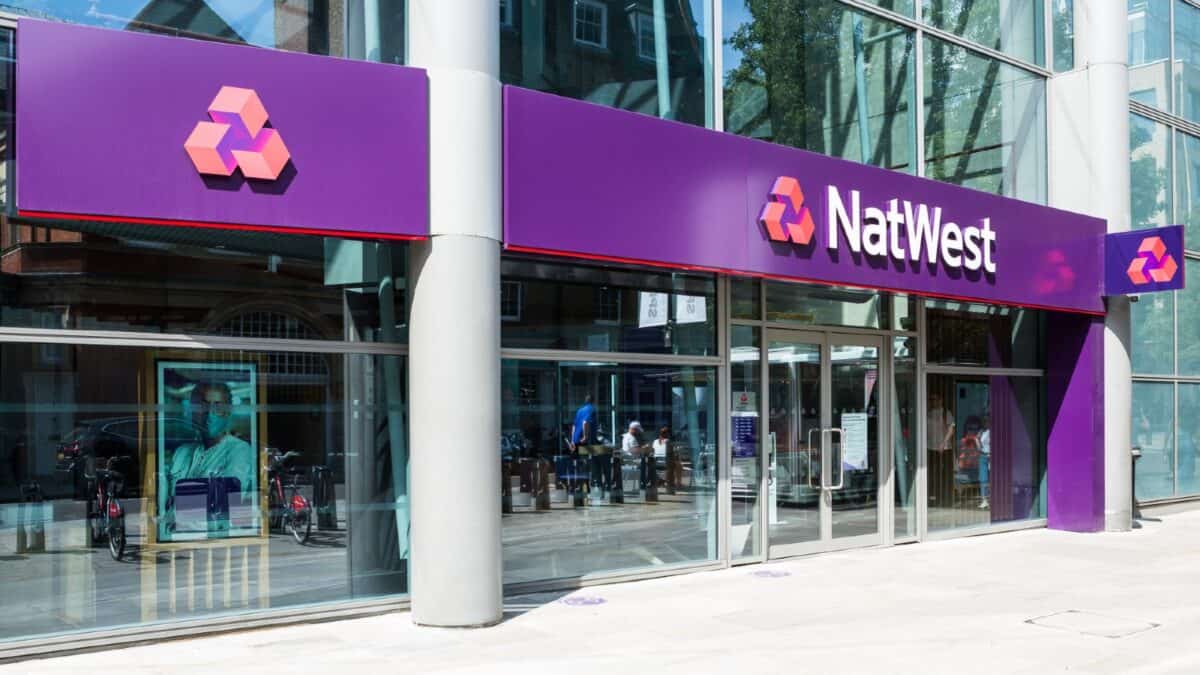Shares in ‘Big Four’ FTSE 100 bank NatWest (LSE: NWG) have dropped 42% from their 2 February high this year. I already hold the stock but am considering buying more now for three main reasons.
Core business looks solid
NatWest’s shares fell over 11% on 27 October — the day of its Q3 results. This was partly due to revenues and earnings per share (EPS) missing analysts’ estimates by 3.3% and 3.8%, respectively.
It also resulted from downgrading its net interest margin (NIM) forecast for the year from 3.2% to 3.15%. This margin is the difference between earnings from loans and payouts for deposits. The downgrade is based on its belief that the Bank of England will hold interest rates stable for the rest of 2023.
In my view, rising government debt in the G7 countries will continue to pull interest rates higher over the long term. This is already reflected in soaring government bond market yields.
There is a risk in the shares, of course, that interest rates start to fall earlier and faster than predicted. Another risk is a major financial crisis that will test liquidity across the banking sector.
That said, I saw many good things in the results too. Revenues were up by 9.3% compared to Q3 2022 — to £3.26bn. And EPS was up from 5.9p to 10p.
In fact, over the last three years on average, NatWest’s EPS has increased by 70% per year. But its share price has only increased by an average 11% per year over that period.
Undervalued to its peers
The bank looks significantly undervalued to its peers on the key metric of the price-to-earnings (P/E) ratio.
NatWest’s is just 3.5, while Barclays’ is 3.6, Lloyds’ is 3.9, HSBC Holdings’ is 5.9, and Standard Chartered’s is 10.8. This gives a UK bank peer group average of 6.05.
It looks even more undervalued against the European bank peer group P/E average of 7.7.
To gauge the level of undervaluation, I use the discounted cash flow (DCF) method, using several analysts’ DCF valuations as well as my own.
The core assessments for NatWest are now between around 72% and 78% undervalued. The lowest of these would give a fair value per share of about £6.50 per share, compared to £1.82 now.
This does not necessarily mean that the stock will reach that point. It does underline to me, though, that it currently offers very good value.
Big passive income generator
In 2022, NatWest paid a Special Dividend of 16.8p, which gives a yield of 17% based on the current share price. Crucially though, even if this Special Dividend is not included in the calculation, the yield is still 7.4%.
So, a £10,000 investment would make another £7,400 in passive income over 10 years if the yield and the share price stayed the same (which is not guaranteed). This is over and above share price gains or losses and tax obligations incurred.
NatWest increased its 2023 interim payment by 57% — from 3.5p to 5.5p. If this was applied to this year’s final dividend, then the total would be 21.2p. This would give an 11.6% yield, with no Special Dividend included, based on the current share price.







